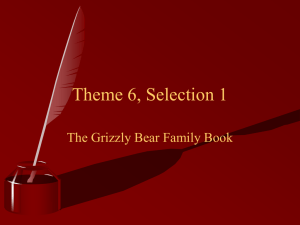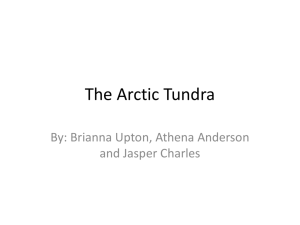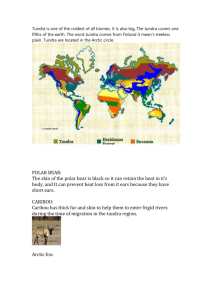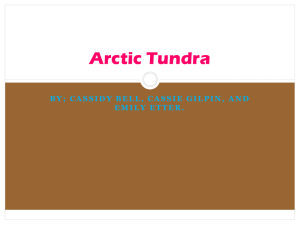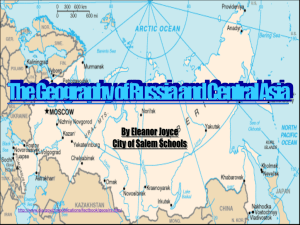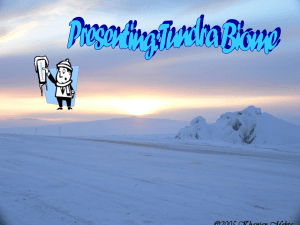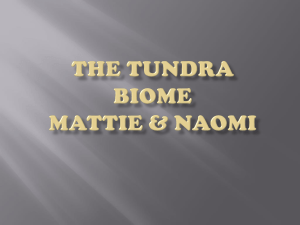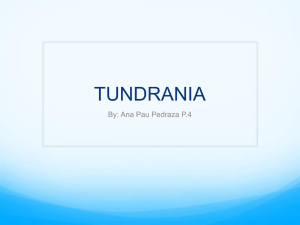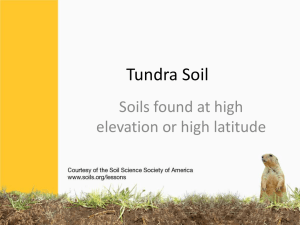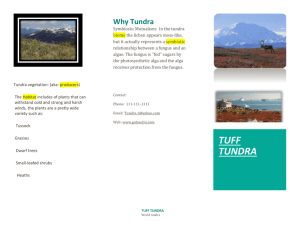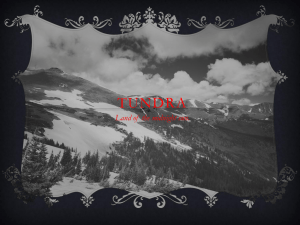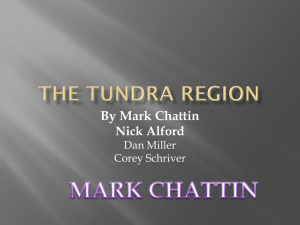The Tundra Ecosystem
advertisement
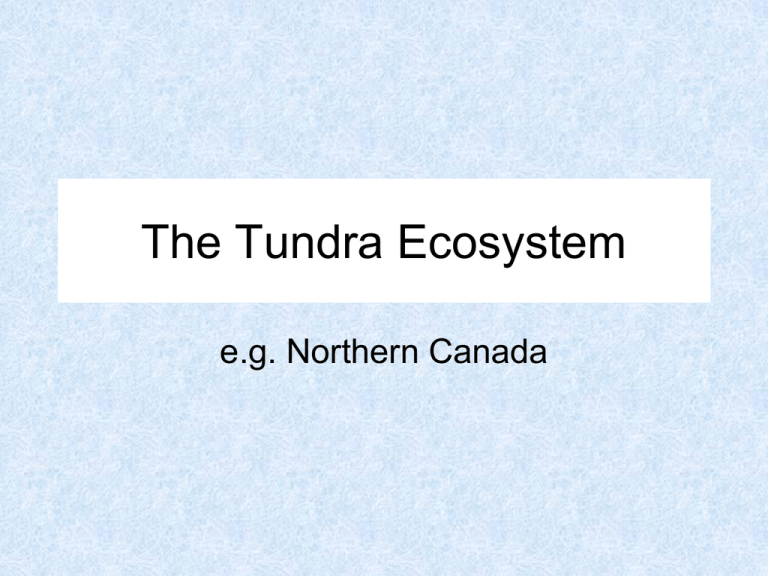
The Tundra Ecosystem e.g. Northern Canada Location and Distribution of the Tundra Biome Arviat Tundra - climate Tundra Food Web NATURAL CHANGES Natural climate change after the Ice Age The land has risen as the weight of the ice has been removed The result is these raised beaches which are rocky … Without soil and therefore still barren w/o plants NATURAL CHANGES Eskers are the bedload of streams that ran in the glacier’s ice and were dumped upside down when the glacier melted after the Ice Age Well-drained areas are highly valued for burrows. Wolves commonly have their pups in burrows on eskers. Usually badly drained areas are permafrost. NATURAL CHANGES Gradual warming may allow trees to colonise. If 8/10 grow those in the centre may survive the harsh winters and become established Excellent source: http://www.specialplaces.ca/spc/5Tundra.html Human Changes – Global Warming Barren ground grizzlies have long been on the tundra but now they are also out on the sea ice and may win the competition as polar bears lose out to global warming. Human Changes – Global Warming Consequences for Local People Permafrost melting Human Changes – Global Warming Arctic Thaw releases Greenhouses gases As the Earth warms greenhouses gases are released from the frozen soil Consequences for Local People “The caribou have changed their migration pattern and no longer go by Maguse Lake. As a result, only half the hunters he brought to Arviat this year shot a caribou. “ Consequences for Local People CONSEQUENCES FOR PEOPLE OUTSIDE THE TUNDRA CONSEQUENCES FOR PEOPLE OUTSIDE THE TUNDRA CONSEQUENCES FOR OTHER ENVIRONMENTS What do we know about Methane? CONSEQUENCES FOR OTHER ENVIRONMENTS Release of stored carbon CONSEQUENCES FOR OTHER ENVIRONMENTS Caribou migration routes – what if the spring thaw comes early? “The caribou have changed their migration pattern and no longer go by Maguse Lake. As a result, only half the hunters he brought to Arviat this year shot a caribou. “ HOW MIGHT ECOSYSTEMS BE BOTH EXPOITED AND CONSERVED IN A SUSTAINABLE WAY? Ecotourism? HOW MIGHT ECOSYSTEMS BE BOTH EXPOITED AND CONSERVED IN A SUSTAINABLE WAY? Conservation hunting, most commonly for polar bear (but also for musk-ox, grizzly bear and caribou) provides many Inuit communities with meaningful employment and a significant source of new income. “ … and showcases Nunavut’s proud traditions of seal hunting and sustainable use of seal to the world.” Nunavut Arctic College fur design and production graduates
